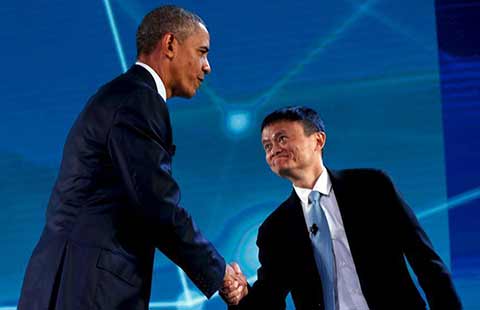China Telecom to speed expansion
By Ding Qingfen and Shen Jingting (China Daily) Updated: 2012-11-14 13:22But analysts say rising protectionism may foil firm's overseas ambition
China Telecom Corp Ltd, the nation's biggest fixed-line operator by revenue, will step up the pace of its overseas expansion and expects its global business unit to have 10 billion yuan ($1.6 billion) in sales this year, according to the company's chairman.
China Telecom has seen its overseas business develop rapidly, especially after the company set up a global business subsidiary - China Telecom Global Ltd - in August, said China Telecom Chairman Wang Xiaochu on Monday.
"China Telecom has a presence mainly in three regions - Asia-Pacific, Europe and the Americas. We established China Telecom Global to coordinate different regions' relations and improve efficiency," Wang said.
In 2011, China Telecom achieved revenue of 6.7 billion yuan from its international business, and Wang predicted the figure will jump to 10 billion yuan by the end of this year.
In addition, China Telecom will be aggressive in overseas mergers and acquisitions, Wang said.
"It is for sure that China Telecom will conduct M&As globally, and we are training talent to be more well-prepared," Wang added.
China Telecom was the first of the domestic operators to go abroad. As early as 2002, China Telecom set up offices in the United States.
After a decade of development, the company's overseas branches covered 26 countries and regions. By 2011, it cooperated with 36 telecommunication operators worldwide to provide services.
It has made significant business progress in the United States. China Telecom Americas, the largest international subsidiary of China Telecom, launched its self-branded mobile services toward the retail market in Chicago at the beginning of this year.
The new service targets frequent business travelers, long-term visitors and students. Donald Tan, president of China Telecom Americas, said the service will be promoted in Los Angeles and New York soon.
If the service does well, China Telecom might consider "building or buying its own network" in the United States, Bloomberg quoted Tan as saying.
However, analysts warned that US government opposition may thwart this ambition.
"Given the failure of Huawei Technologies Co Ltd and ZTE Corp in their attempts to gain a foothold in the US market, I am not optimistic that China Telecom, a truly State-owned Chinese company, will do any better," said Xiang Ligang, a Beijing-based telecommunications expert who also runs the industry information website cctime.com.
Chinese telecommunications companies have long been willing to go global and have made several attempts to meet this goal.
China Mobile Ltd, the world's biggest telecom carrier with 698.5 million subscribers, bought a money-losing Pakistani carrier in 2007 and then offered service to local customers under the new brand Zong.
Wang Jianzhou, the former chairman of China Mobile, said in a March interview that China Mobile intends to expand its operations to a greater number of emerging markets, and it is also seeking opportunities to "become a minority shareholder in telecom carriers in the European or North American markets".
China Unicom (Hong Kong) Ltd and Telefonica SA, the biggest telecom company in Spain, agreed to buy stocks in each other and hoped to keep a long-term partnership.
4G roadmap
Wang said China Telecom is tracing 4G technology development worldwide, but did not say which standards the company will adopt.
"The Chinese government is still discussing detailed 4G issues, such as when to grant 4G commercial-use licenses," Wang said. He added that China Telecom is actively joining the discussion.
Rumors have circulated in the Chinese media recently that China Telecom is about to deploy a wireless network using the homegrown TD-LTE 4G technology.
If that is true, analysts say, TD-LTE's 4G standard will have another powerful supporter, and China Telecom's participation will further push forward the globalization of the technology.
Yang Hua, secretary-general of the TD Industry Alliance in China, an alliance focusing on promoting the global adoption of Chinese-developed 3G and 4G technologies, said it is possible for China Telecom to adopt TD-LTE technology based on the current spectrum situation in China.
"We should still wait to see the government's attitude because it is the government that will make the final 4G development decision for those State-owned telecommunication operators," Yang said.
Contact the writers at dingqingfen@chinadaily.com.cn and shenjingting@chinadaily.com.cn
- VR expected to be more than just a gaming tool
- Concur aims to help firms streamline travel expenses
- New materials to overhaul conventional manufacturing industry
- Fanning the flames of innovation
- China's ship-breaking industry swimming through troubled waters
- China's wool tycoon in rescue act Down Under
- Where the future of smart wristbands is?
- Chinese banks becoming global leaders in ship financing


















